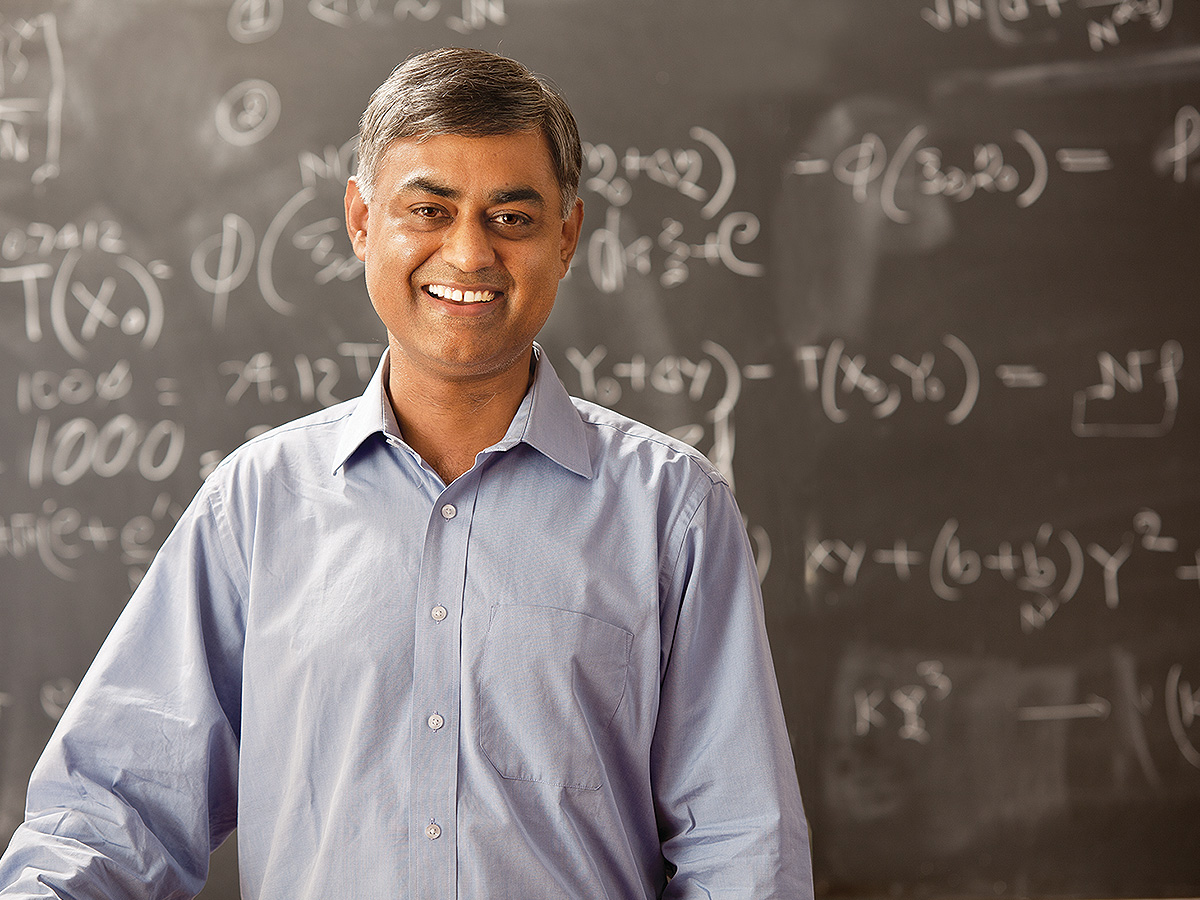The Infosys Prize 2010 for Physical Sciences is awarded to Professor Sandip Trivedi for finding an ingenious way to solve two of the most outstanding puzzles of Superstring Theory simultaneously: What is the origin of dark energy of the Universe? Why is there no massless scalar particle?
Infographic:
Tackling the mysteries of Superstring Theory
Scope and Impact of Work
Theoretical physics is a branch of physics which employs mathematical models and abstractions of physics in an attempt to explain natural phenomena. The goal is to rationalize, explain and predict physical phenomena. Professor Trivedi’s research led to important connections between String Theory, Cosmology and Particle Physics. In particular, he has made significant contributions to the study of superstring cosmology, flux compactifications, black hole physics and supersymmetry breaking.
The goal of theoretical physics is to produce conceptual models that explain and predict natural phenomena. Physicists have achieved a remarkably powerful, accurate and complete description of the fundamental laws governing an enormous range of phenomena, culminating in the so-called "Standard Model". So far this Model has passed every experimental test successfully. The Model invokes four fundamental forces (gravity, electromagnetism, and the strong and weak nuclear forces) and several distinct building-blocks of matter. However, the Model has conceptual difficulty in describing extreme gravitational fields, such as might be encountered in the very early Universe or in the interior of black holes. Superstring theory aims at unifying all the fundamental forces and solving the mysteries of the gravity. However, many questions remain.
Professor Sandip Trivedi's research forges important connections between superstring theory, cosmology and particle physics.
Bio
Professor Sandip Trivedi completed his Master of Science degree in Integrated Physics in 1985 from the Indian Institute of Technology, Kanpur and received his Ph.D. from the California Institute of Technology, Pasadena, USA in 1990. He went on to pursue professional training as a Post Doctoral Research Associate at the Institute for Advanced Study, Princeton, New Jersey until 1992.
Professor Trivedi has been awarded numerous prizes including the Shanti Swarup Bhatnagar Award in the Physical Sciences, CSIR, Government of India in 2005. He has been a Fellow of the Indian Academy of Science since 2005. Currently, he is a Professor at the Tata Institute of Fundamental Research in the Theoretical Physics Department, Mumbai and pursues research in the fields of String Theory, Cosmology and Particle Physics. He currently serves as a member of the Program Advisory Board of the International Center for Theoretical Sciences (ICTS).
Timeline
Jury Citation
Professor Sandip Trivedi has made important original contributions to several areas of theoretical physics. In recent years, a large community of physicists has pursued the possibility of achieving a unified account of all the known forces of physics - including gravity as well as the strong, electromagnetic, and weak interactions - using the concepts of Superstring Theory. But it had proved difficult to construct solutions of the equations of Superstring Theory that did not contain massless particles of a kind not observed in nature ('moduli problem'), and that describes an accelerating or inflating Universe, which seem to be required by cosmological observations. Through an ingenious construction that introduced several theoretical innovations, Professor Trivedi showed that these difficulties are connected, and can be overcome simultaneously. His work has revolutionized this field and forms the basis of much ongoing research throughout the world.

